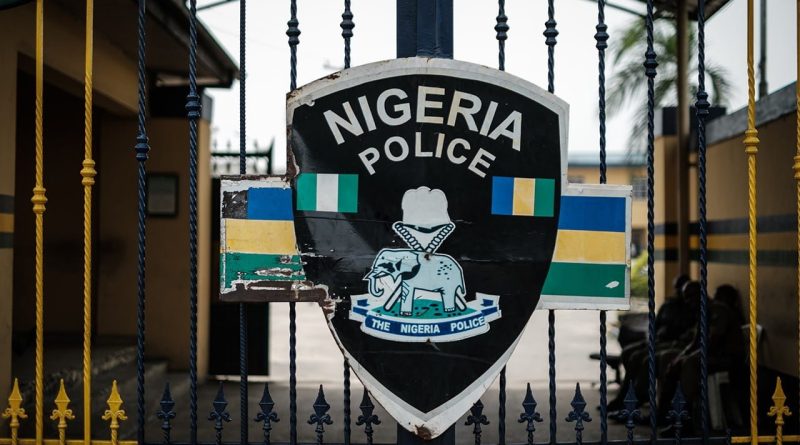Nigerian police charge journalist with cyberstalking Delta governor, senator over social media trolls
The Nigerian police have charged a journalist with cyberstalking for calling Delta State Governor Sherif Oborevwori of Delta State and a senator names on social media.
Fejiro Oliver, the publisher of the state-based Secret Reporters, was charged in two separate cases filed on Friday at the Federal High Court in Asaba, Delta State.
Each case focused on Mr Oliver’s claims against either the governor or the senator, Ede Dafinone, who represents Delta Central Senatorial District in the Nigerian Senate.
Police alleged that for months this year, Mr Oliver posted remarks on social media “aimed at destroying” the reputations of the governor and the senator.
The cases were brought under the controversial section 24 (2) (c) (ii) of the Cybercrime (Prohibition Prevention etc) Act, 2015, which prescribes up to N7 million fine or imprisonment of up to three years or both, as punishment upon conviction.
In the case pertaining to Mr Oborevwori, the police filed just one count against Mr Oliver, accusing him of cyberstalking the governor by publishing defamatory posts on Facebook about him between July and August.
The charge outlined the remarks to include “the Governor travelled to Brazil without the people knowing and making it ‘Hush — Hush”, “the Governor gave contracts to his boys worth billions of Naira for rigging election”, and “the Governor sent government officials to China, spending millions of Dollars only to go and inspect CNG buses instead of attracting investor.”
Another one was quoted as “the governor is a sleeping governor who rigged election”.
The other case, which had two counts, accused Mr Oliver of cyberstalking Mr Dafinone between May and July.
In the first count, Mr Oliver was accused of cyberstalking the senator by calling him “different names like ‘grossly incompetent senator’, ‘sleeping senator’, ‘betraying ingrate’, ‘Dodo Senator’, ‘POS Senator’, ‘Scammer in NASS’, and that ‘Senator Ede Dafinone must be recalled from the Senate’.”
The second count said Mr Oliver cyberstalked the senator by accusing him of “stealing” in a post “stating that he hid school buses and transformers meant for his constituents.”
Background
According to a report, the police arrested Mr Oliver on 18 September and detained him without charge at the State Criminal Investigation Department in Asaba.
Mr Oliver’s lawyer, Inibehe Effiong, filed an ex parte application, prompting the judge, Folashade Ogubanjo-Giwa, to order the police to justify within 48 hours why Mr Oliver should not be unconditionally released.
Mr Oliver’s case highlights growing concerns over how Nigerian elites, including public officials, use police to target social media trolls critical of them.
Although Nigerian law provides for mechanisms for instituting civil actions to seek redress over any online comment considered offensive or defamatory, many Nigerian elites prefer to take the criminal approach, which places the burden of clearing their names on the police.
Many are also concerned that the police are preoccupied with tackling online trolling despite their limited workforce and resources, while widespread serious crimes and security issues continue to affect multitudes of people in various parts of the country.
Many observers say the police invoke the Cybercrimes Act to arrest and detain critics of public officials and other influential Nigerians in disregard for constitutional rights.
READ ALSO: SPECIAL REPORT: How Imo became Nigeria’s most dangerous state for journalists
In September, Governor Nasir Idris of Kebbi State reportedly ordered the arrest of a journalist, Hassan Kangiwa, for releasing a video that showed the deplorable condition of Kangiwa General Hospital in the state.
Earlier in May, the Socio-Economic Rights and Accountability Project (SERAP) urged “the government of President Bola Tinubu to immediately end the use of the draconian Cybercrimes Act to target journalists, activists, critics and other Nigerians peacefully expressing their views online, and release those in custody across the country under the legislation.”
Section 24 of the Act criminalises certain “cyberstalking” behaviour via electronic communications.
In particular, subsection (2)(c)(ii) deals with transmitting a message (or causing it to be sent) that is false, when the sender knows it is false, and does so for the purpose of causing annoyance, inconvenience, danger, obstruction, insult, injury, criminal intimidation, enmity, hatred, ill will, or needless anxiety to another person, or causes such a message to be sent.
If convicted, the offender can be penalised by a fine of up to N7 million, or imprisonment of up to 3 years, or both.
SERAP said it was concerned that Nigerian authorities continued to use the Cybercrime Act “to normalise repression” of the rights of journalists, bloggers, human rights defenders, opposition politicians, artists and other Nigerians.
“Nigerian authorities at all levels of government should immediately stop using the Cybercrimes Act and regulations disguised as broadcasting code by the National Broadcasting Commission (NBC) to target, intimidate and harass journalists, bloggers, critics and media houses,” the group said.


